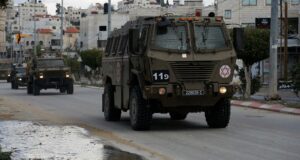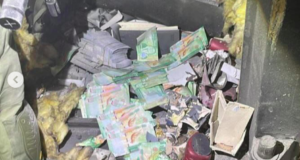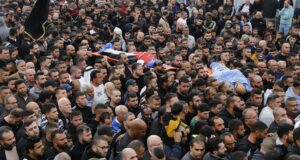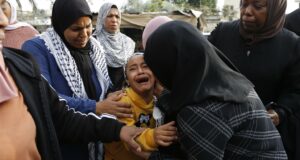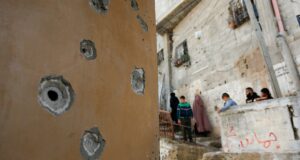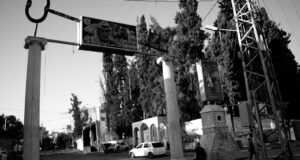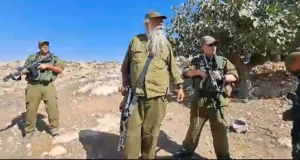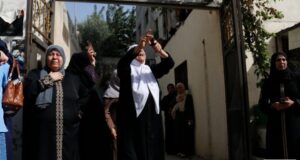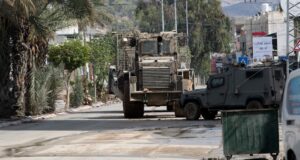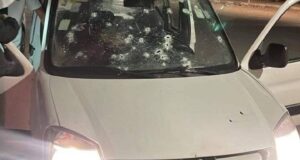4 January 2024 | International Solidarity Movement | Tulkarm By Diana Khwaelid On the night of Tuesday, January 2, the Israeli occupation carried out a new incursion against the residents of the city of Tulkarm and its two refugee camps. Tulkarm ...
Read More »Unprecedented Coordinated IOF Attacks in West Bank
Early this morning, between 1:00 am and 6:00 am, Israeli Occupation Forces invaded several cities across the West Bank. Of the 11 Palestinian governorates in the West Bank, 7 were invaded in a coordinated attack. Clashes were documented in Jenin, Hebron, Qalqilya, and Ramallah, with reports of invasions in Tulkarem, Nablus, and Jericho. Invasion forces stormed the cities, targeting money transfer stations, stating that funds were being funneled from these major cities to Hamas.
Read More »Tulkarm Bids Farewell to 5 Palestinians Killed in an Israeli Military Operation.
18 December 2023 | International Solidarity Movement | Nour Shams refugee camp By Diana Khwaelid An Israeli military operation lasted for more than 10 hours in the Nour Shams refugee camp. Destruction of infrastructure Dozens of military vehicles stormed ...
Read More »One war in Gaza and another in the West Bank
by Diana Khwaelid 7 December 2023 | International Solidarity Movement | Tulkarem The fire of the war between Hamas and Israel since October 7 has not only burned the civilian population of Gaza. Palestinian civilians in the West Bank ...
Read More »Who is Holding Israel Accountable for its Crimes?
Israeli snipers were deployed everywhere, especially on the roofs of Palestinian houses inside the camp and its surroundings, as well as inside buildings under construction in the city, targeting anything that moved.
Read More »Two attacks in less than 24 hours in Tulkarem Camp
08 November 2023 | International Solidarity Movement | Tulkarm By Diana Khwaelid The Israeli occupation is not only committing crimes in Gaza, it continues to commit crimes in the West Bank. A quick military operation was carried out by Israeli ...
Read More »Ethnic cleansing in Masafer Yatta reaches unbearable level: Call to Action
Masafer Yatta | International Solidarity Movement Colonial violence and ethnic cleansing is quickly escalating in Masafer Yatta, a rural region south of Hebron, in the West Bank. Settler militias are terrorizing Palestinians by invading their villages during pogroms, armed with ...
Read More »Israeli crimes around the clock in the West Bank
22 October 2023 | International Solidarity Movement | Zawata by Diana Khwaelid Zawata town-Nablus. On the evening of Sunday, 22-10-2023, the Israeli Occupation Forces (IOF) stormed the town of Zawata, northwest of the city of Nablus. The residents of ...
Read More »A new massacre in Nour Shams camp, Tulkarm
19 October 2023 | International Solidarity Movement | Tulkarm By Diana Khwaelid The Israeli occupation forces launched a major military assault on the city of Tulkarm, especially on the Nur Shams refugee camp. A curfew was imposed throughout the ...
Read More »Israeli snipers target civilians, kill father of 3-year-old in Tulkarm
13 October, 2023 | International Solidarity Movement | Tulkarm By Diana Khwaelid On the evening of Friday, October 13th, 2023, Israeli snipers opened direct live fire on a white civilian car while it was passing near the Sanaoz military ...
Read More » International Solidarity Movement Nonviolence. Justice. Freedom.
International Solidarity Movement Nonviolence. Justice. Freedom.
